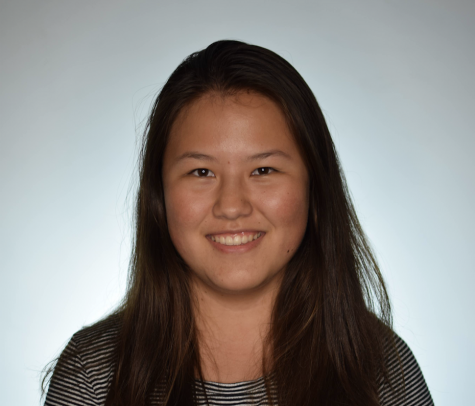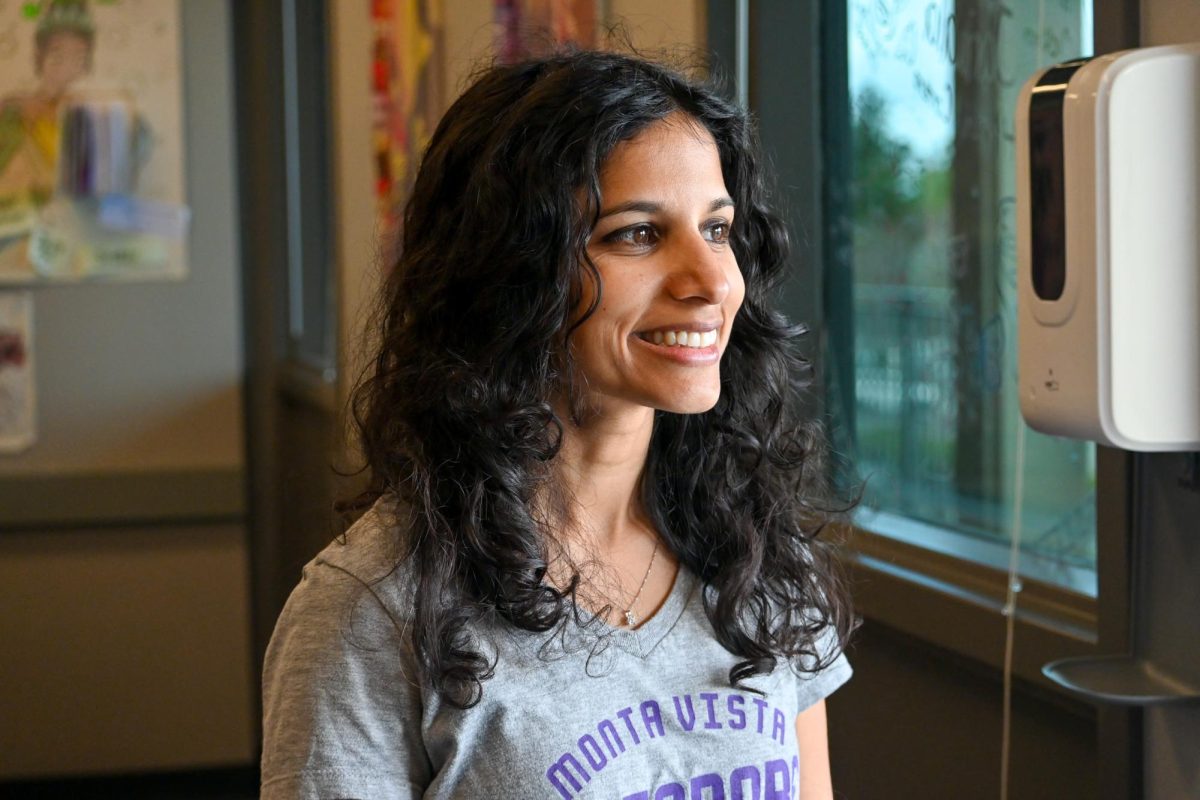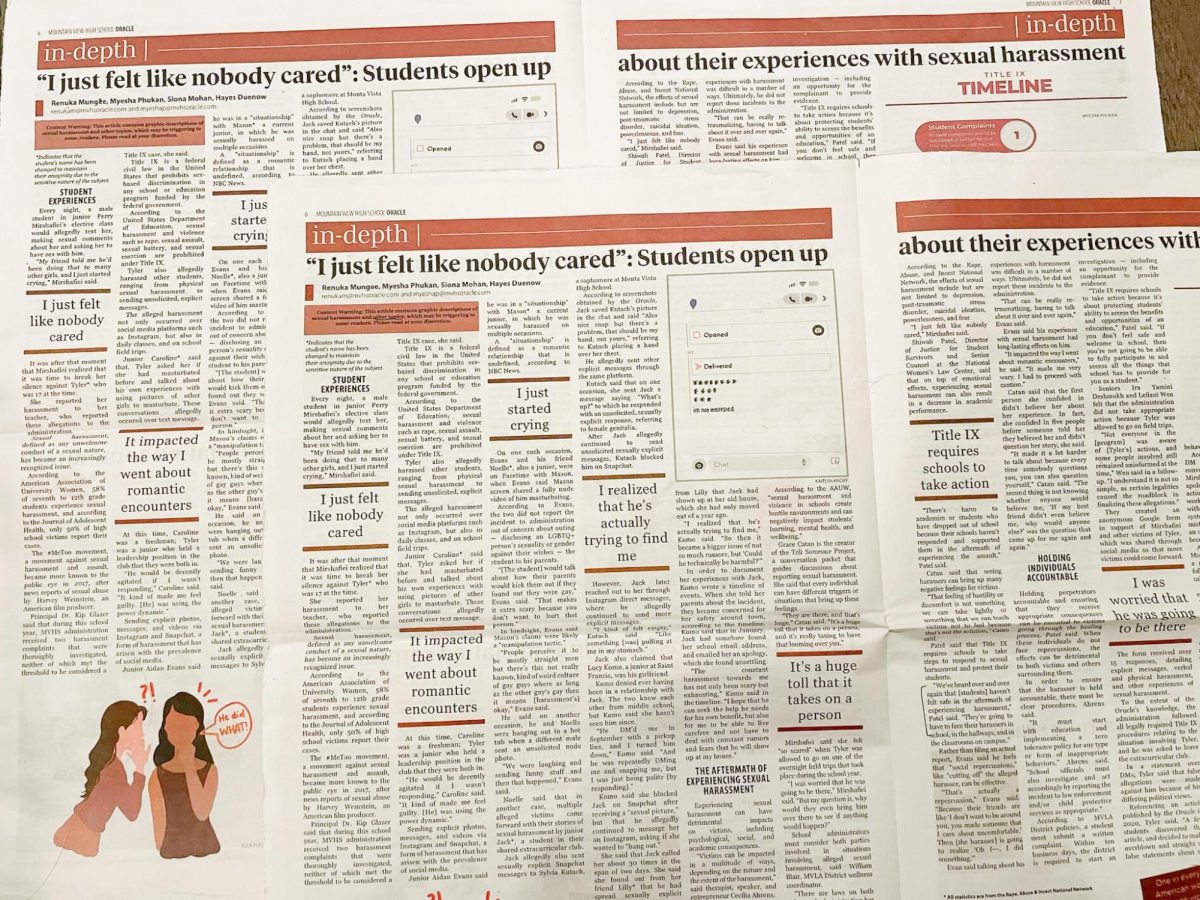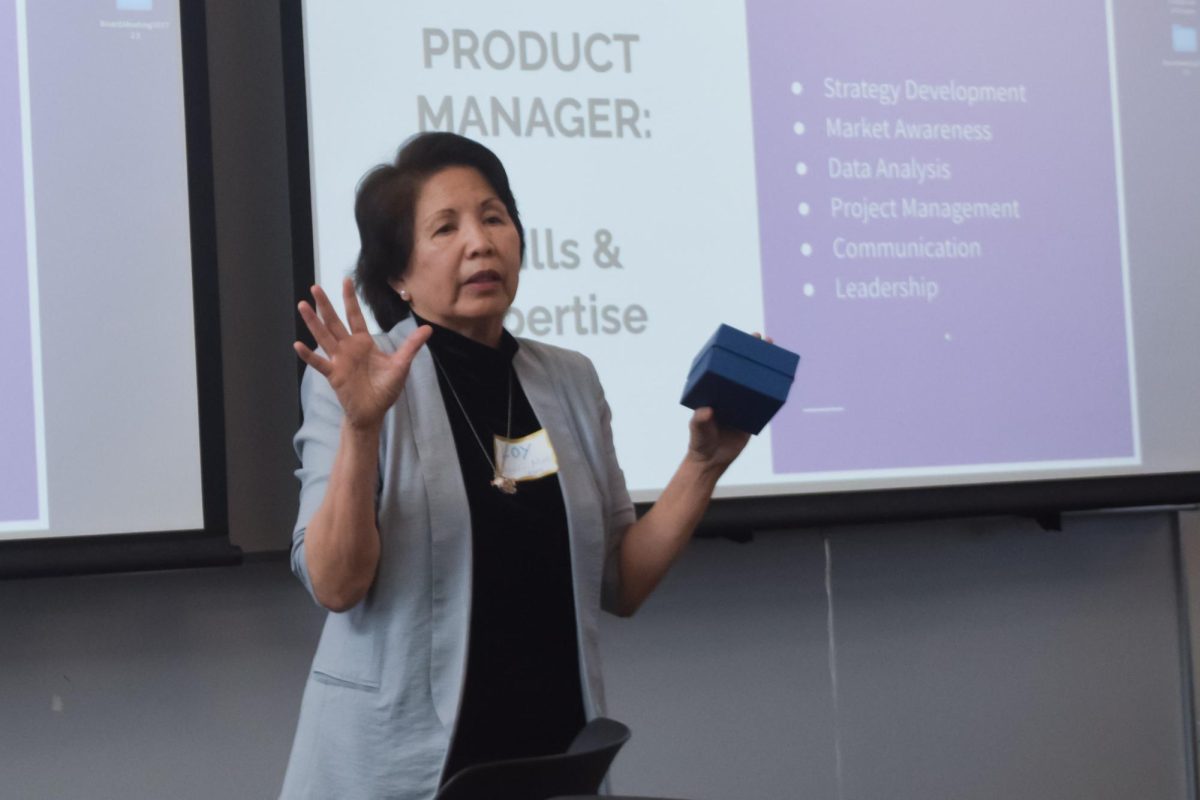Co-authored by Sneha Gaur

The distinct scent of jasmine flowers floats along with the Middle Eastern breeze as the call for prayer sounds throughout the city. The market of Jazmateya is small but lively, the stalls lined with a myriad of different desserts. People roam the street at any time of day, greeting each other with the familiar words: As-salamu alaykum. Peace be with you.
A smile slowly spreads across senior Radwan Hamwi and sophomore Hadi Hamwi’s mother Eman Altayyeb’s face and her eyes shine as she remembers her home.
This was Damascus, Syria’s capital, before Altayyeb left and before the civil war erupted in 2011. It’s on the news almost every day, and yet, living 7302 miles away, it’s difficult for us to understand the fear refugees live with, the terrors they face. Although it may be like this for many, Altayyeb’s personal journey from her hometown has taught her to cope with leaving behind her family and the country she considers part of her identity.
Remembering home
Altayyeb was born and raised in Kuwait, a country by the Persian Gulf, but fled to Syria when an invasion by the former President of Iraq, Saddam Hussein, began. Although she was born in Kuwait, she considers Syria her home. For Altayyeb, Damascus was a very lively city. At one or two in the morning, people would walk on the streets and restaurants would be open. Walking through a street or neighborhood was like walking through history. The sense of community and love in the city is something Altayyeb still associates with Damascus, and what she misses after 25 years of living in America.
“[The refugees] either lost their money, houses or families, so what else are they going to lose?” Altayyeb said. “They’re left with nothing, but when I left Kuwait I had everything.”
When Altayyeb came to America from Syria, she wanted to start a new life. However, the differing cultures made it hard to adjust.
“I still miss my city, the people, my neighbors, the way we talk and the way we greet each other. It makes me feel like [Syria] is my identity,” Altayyeb said. “I like where I come from, I like who I am.
Her father, Mahmoud Altayyeb, faced a similar situation when he came to America to escape the danger in Syria. He didn’t want to apply for a green card, but he did so for the sake of his safety.
“He didn’t think there was a need for him to leave his country,” Eman said. “If we were just sitting there, talking about anything, he’d say ‘Allah, I miss my family, I miss my home, I miss my life.’”
In Syria his brother and sister were just a short walk away from his home. While walking to the mosque, his neighbors would affectionately call him “uncle.” When he left Syria, he not only left his beloved country but also the community and social life that doesn’t exist here in Cupertino. For Mahmoud, hubb alwatan min al’iiman, or loving his nation, is part of his faith. When asked what it was like living in Syria, he laughed.
“I’m still living in Syria. I’m here as a guest.”
The war
The Syrian civil war officially began in March 2011 when President Bashar al-Assad ordered government forces to open fire on anti-government protesters in Daraa, sparking violent resistance across the country. Since then, nine million refugees have fled to other countries in the Middle East and fanned across Europe to escape the destruction in their home country.
Not all are so fortunate: Eman’s sister applied for an American visa but was rejected. Despite living in Damascus, one of the safest cities in Syria, her sister faces violence every day and must live without certain resources. Most days she doesn’t have electricity and can’t heat her water — on other days, she doesn’t even have water.
“There’s a lot of checkpoints and the rebels want to fight the government so they throw rockets. One day [my sister] told me the second the taxi she was riding in moved, the rocket landed where they had just been parked,” Eman said. “She was so lucky.”
Eman’s worst nightmare seemed to come true when Israel bombed an area next to the Bashar palace, just one mile from where her sister lived.
“[My sister] was crying because she didn’t know what was going on since she just heard bombs,” Eman said. “Once you hear their voice, you feel [a sigh of relief]: they are alive.”
Tears silently ran down her face as she remembered the suffering seen in the media: the drowned Syrian boy, the refugee camps and the destruction of the once beautiful cities.
“I stopped watching the news, but still you cannot really pull yourself away,” Eman said. “Nowadays I can’t see the pictures of the pain, of the kids.”
It took time for her to come to terms with the fact that her sister and other relatives still live in Syria and are unable to leave. They aren’t able to acquire a visa, even as tourists, because they aren’t officially registered as refugees under a camp. When her father was still living in Syria, Eman would worry every time she heard something about the crisis.
“I used to panic, I used to cry,” Eman said. “You get paralyzed, and we’re living with the prayer and hope that nothing’s happening.”
Finding hope
Organizations like the International Rescue Committee were founded to help these refugees, with locations throughout the United States. According to Igor Radulovic, the casework coordinator in the San Jose office, refugee relocation starts with the American Embassy and the lengthy process of checkups. Once they  receive the refugee status, the refugees are sent to live with their family, if they have any here. If not, IRC is their sponsor. IRC picks up the refugees from the airport, helps them acquire housing and documents all of their paperwork. When refugees begin to look for employment, IRC provides them with classes and helps them look for jobs.
receive the refugee status, the refugees are sent to live with their family, if they have any here. If not, IRC is their sponsor. IRC picks up the refugees from the airport, helps them acquire housing and documents all of their paperwork. When refugees begin to look for employment, IRC provides them with classes and helps them look for jobs.
“We’re kind of like a mom, a dad or a whole family to them for a while,” Radulovic said, “Everything that they do, we’re here to help them.”
Eman’s son, senior Radwan Hamwi, was born in America and believes that he is a bit sheltered from the refugee crisis. Yet he feels sad and upset when he sees the destruction in Damascus.
He remembers playing soccer or basketball with the other kids in his grandfather’s apartment building. However, those kids that he used to be friends with are now forced to enter adulthood from an early age because of the civil war.
“Sometimes from what I see online,” Radwan said, “I think maybe I met [the refugees] before when I visited [Syria] when I was younger, or maybe they’re somehow related to me and now they’re dead.”
As a student at MVHS, Radwan believes that many students are still unaware about the refugee crisis, although media has helped the awareness over the years. [insert survey about awareness on campus]. Students can help end the suffering by signing petitions and being aware of the issue at hand. Eman strongly believes the importance of educating the younger generations about this issue. As her family members face constant danger, she feels the injustice of her kids living the luxury and privilege in America. That fuels her passion to speak out and encourage others, especially the younger generation, to make a change.
“You are the blood, you are the power, you are the energy,” Eman said. “We need to stop this, and that [responsibility is on] your generation.”























